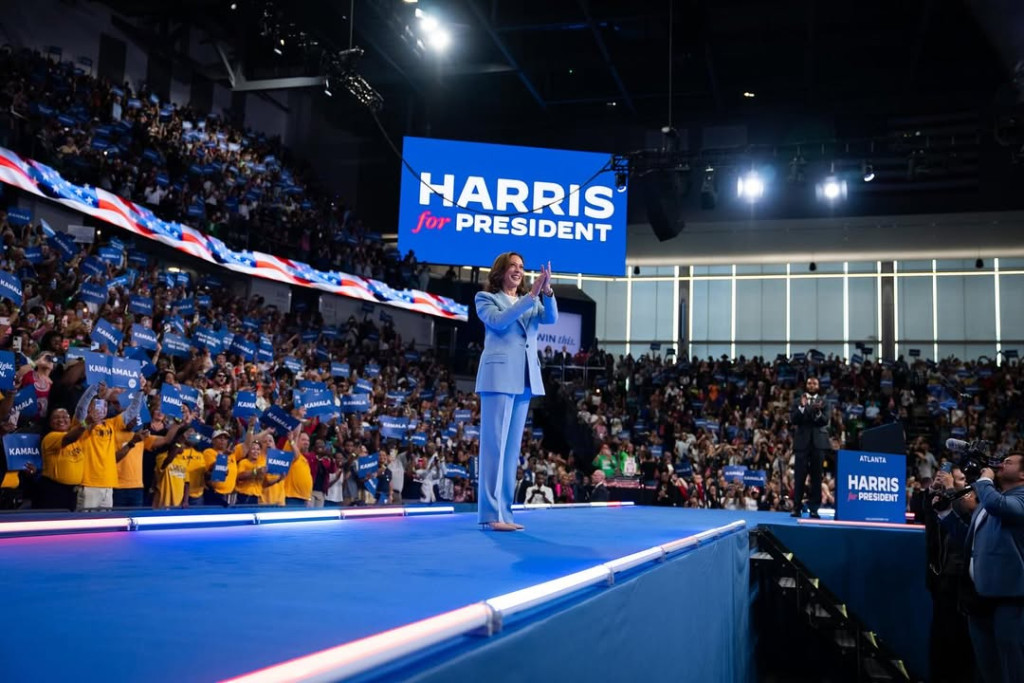One year ago today, Vice President Kamala Harris launched her historic campaign for President of the United States.
“One year ago today, I began my campaign for President of the United States. Over the 107 days of our race, I had the opportunity and honor to travel our nation and meet with Americans who were fighting for a better future,” Harris posted on Instagram.
Stepping into the 2024 race as the Democratic nominee after President Biden opted not to seek re-election, Harris became the first Black woman and South Asian woman to top a major party ticket. While much of her platform aligns with the Biden-Harris administration’s efforts, she also laid out a bold vision of her own, one that spoke directly to the lived realities of Black men and their families.
A Direct Investment in Black Men: The “Opportunity Agenda”
One of Harris’ most targeted initiatives is her “Opportunity Agenda for Black Men,” a comprehensive policy aimed at closing wealth gaps, tackling health inequities, and expanding career pathways.
A highlight of this agenda was a promise to deliver 1 million fully forgivable loans (up to $20,000) to Black entrepreneurs. Harris emphasized that Black founders are often denied traditional credit, even when their credit scores match their white counterparts.
These loans would serve as seed funding for a range of businesses, from barbershops to tech startups, addressing one of the biggest hurdles for aspiring Black business owners: access to capital.
Health Equity That Hits Home
In a first-of-its-kind national health initiative, Harris planned to launch a Health Equity Strategy focused on Black people. She specifically called out sickle cell disease, diabetes, mental health, and prostate cancer, conditions that disproportionately impact the Black community but are often overlooked by mainstream policy.
This initiative would have involved expanding funding for the National Institute of Minority Health and Health Disparities and pushing for Medicare to cover in-home care services, a benefit that could be life-changing for aging Black families.
Criminal Justice, Reentry, and Employment Fairness
Harris also leaned into criminal justice reform by pledging to limit the use of criminal records and credit scores in hiring decisions. She supported “ban the box” policies, which delay background checks until after candidates are considered on merit. With Black men disproportionately impacted by the criminal legal system, this policy would help remove barriers to economic reintegration and personal dignity.
She also wants to eliminate sub-minimum wages for tipped workers and people with disabilities, and raise the federal minimum wage, moves that would disproportionately benefit workers of color.
Small Business, Big Vision
For Black professionals looking to scale their brands or build generational wealth, Harris proposed expanding the startup expense deduction from $5,000 to $50,000 and increasing the share of federal contracts awarded to small businesses.
She also wanted to generate 25 million new business applications and ensure more equitable distribution of government-backed funding, something that has long been a sticking point for minority entrepreneurs.
The Bigger Picture
Harris’ platform was wide-ranging. She promised to legalize marijuana, ban assault weapons, expand voting rights, and strengthen labor unions.
She also planned to eliminate taxes on tips, support paid family leave, and establish universal background checks for gun sales. These issues impact all Americans, but taken together, they form a framework that could reshape what it means to be a minority navigating work, family, and identity in America.
What America could have been!
Photo Credit: Instagram – KamalaHarris




